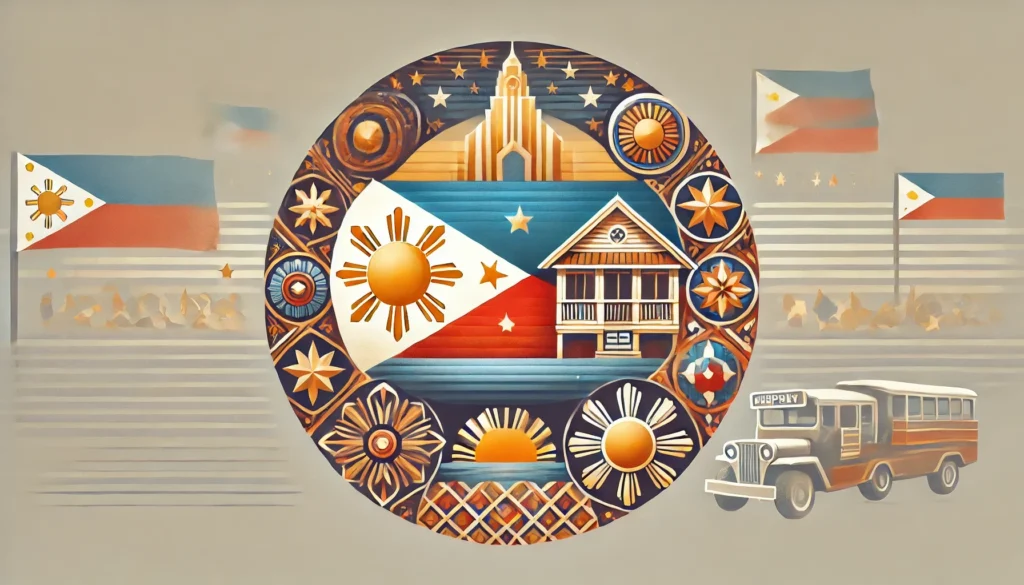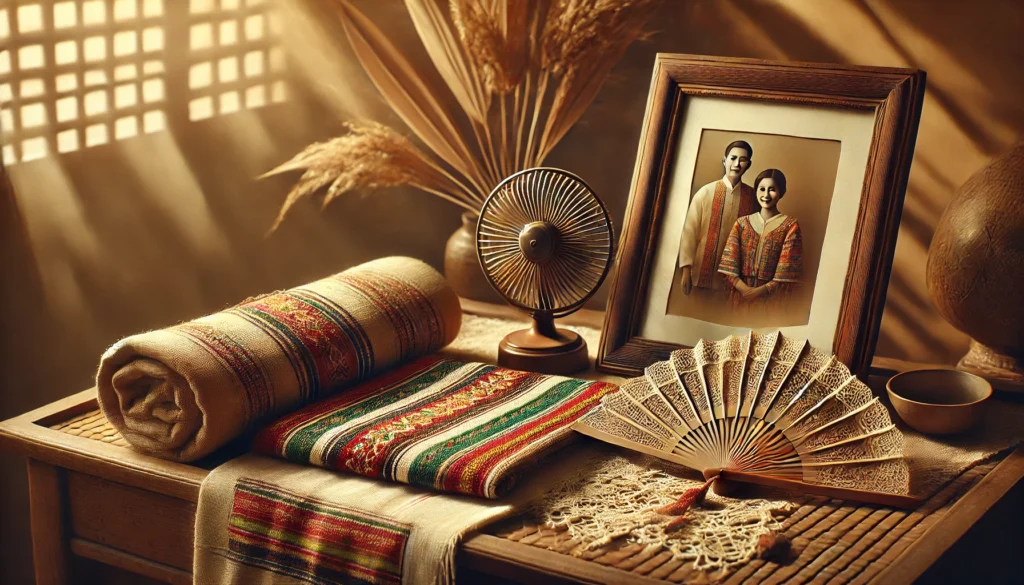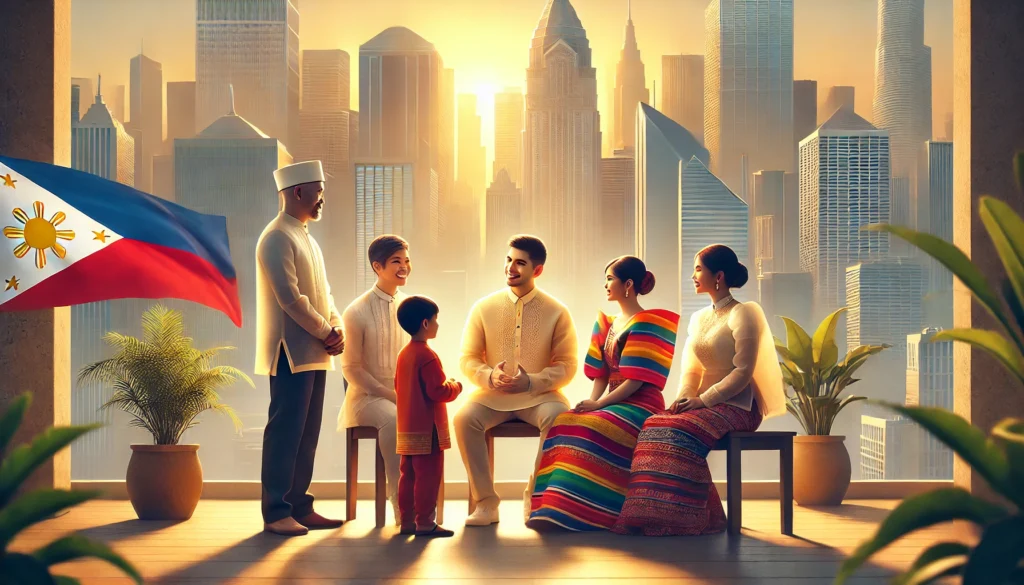The Philippines, an archipelagic nation in Southeast Asia, is renowned for its rich cultural heritage and strong sense of identity. At the core of this identity lies a set of values that have been passed down through generations, shaping the Filipino way of life and influencing their interactions with one another and the world at large. These values, deeply rooted in history, tradition, and societal norms, play a crucial role in maintaining the fabric of Filipino society. As the country faces rapid modernization and globalization, the preservation of these values becomes increasingly important. This blog post explores the significance of Filipino values, their impact on society, and the reasons why their preservation is essential for the nation’s future.
Understanding Filipino Values
Definition and Origins
Filipino values are the set of principles, beliefs, and attitudes that guide the behavior and decision-making of Filipinos. These values have been shaped by various influences throughout the country’s history, including indigenous traditions, Spanish colonization, American occupation, and Asian cultural exchanges. The result is a unique blend of Eastern and Western ideals that form the foundation of Filipino culture.
Core Filipino Values
Several key values are widely recognized as fundamental to Filipino culture. These include:
- Family-centeredness (Pamilya)
- Respect for elders (Paggalang sa nakatatanda)
- Hospitality (Malasakit)
- Resilience (Katatagan)
- Faith and religiosity (Pananampalataya)
- Collectivism (Bayanihan)
- Honor and dignity (Dangal)
These values are not isolated concepts but interconnected principles that work together to shape Filipino society and individual behavior.
The Significance of Filipino Values in Society
Social Cohesion and Harmony
Filipino values play a crucial role in maintaining social cohesion and harmony within communities. The emphasis on family-centeredness and collectivism encourages strong social bonds and mutual support systems. This sense of interconnectedness helps to create a more stable and peaceful society, where individuals look out for one another and work together towards common goals. The value of respect for elders also contributes to social harmony by promoting intergenerational understanding and reducing conflicts between age groups.
Cultural Identity and Pride
Preserving Filipino values is essential for maintaining a strong sense of cultural identity and national pride. In an increasingly globalized world, where cultural homogenization is a growing concern, holding onto these unique values helps Filipinos to retain their distinct identity. This cultural pride serves as a source of strength and unity, especially for Filipinos living abroad or facing challenges at home. It also contributes to the country’s soft power on the international stage, making the Philippines more attractive for tourism, cultural exchanges, and diplomatic relations.
Ethical Framework and Moral Compass
Filipino values provide an ethical framework and moral compass for individuals and society as a whole. Values such as honor, dignity, and faith guide decision-making and behavior, promoting integrity and moral conduct in personal and professional spheres. This ethical foundation is crucial for building trust within communities, fostering responsible citizenship, and combating corruption and other social ills.
The Impact of Filipino Values on Different Aspects of Life
Family and Relationships
The family-centered nature of Filipino values has a profound impact on family dynamics and relationships. Extended family structures are common, with multiple generations often living together or maintaining close ties. This promotes intergenerational support, shared responsibilities, and a strong support system for raising children and caring for the elderly. The value of respect for elders ensures that older family members are honored and cared for, while also preserving traditional knowledge and wisdom.
Education and Career
Filipino values significantly influence attitudes towards education and career choices. The emphasis on family often leads to collective decision-making regarding educational and career paths, with many Filipinos considering the needs and expectations of their families when making these choices. The value of resilience encourages perseverance in the face of academic and professional challenges, while the collectivist mindset promotes teamwork and collaboration in educational and work environments.
Governance and Civic Engagement
The core values of Filipinos play a role in shaping governance and civic engagement. The concept of bayanihan, or communal unity and cooperation, encourages active participation in community affairs and volunteerism. This value can be seen in action during times of crisis, such as natural disasters, when Filipinos come together to support one another. Additionally, the values of honor and dignity influence expectations of political leaders and public servants, although the realization of these ideals in practice remains a challenge in some areas of governance.
Challenges to Preserving Filipino Values
Globalization and Westernization
One of the most significant challenges to preserving Filipino values is the increasing influence of globalization and Westernization. As the Philippines becomes more integrated into the global economy and culture, there is a risk of traditional values being eroded or replaced by more individualistic and materialistic ideals. This is particularly evident among younger generations who are more exposed to international media, trends, and lifestyles.
Urbanization and Changing Family Structures
Rapid urbanization in the Philippines has led to changes in family structures and community dynamics. As more people move to cities for work or education, traditional extended family structures are often replaced by nuclear families or even single-person households. This shift can weaken the transmission of values from older to younger generations and reduce the emphasis on family-centeredness and collectivism.
Economic Pressures and Materialism
Economic challenges and the pursuit of material success can sometimes conflict with traditional Filipino values. The pressure to succeed financially may lead some individuals to prioritize personal gain over community welfare or family obligations. This can result in a shift away from values such as collectivism and hospitality towards more individualistic and competitive behaviors.
Strategies for Preserving Filipino Values
Education and Cultural Programs
One of the most effective ways to preserve Filipino values is through education and cultural programs. Integrating these values into the school curriculum at all levels can ensure that younger generations understand and appreciate their cultural heritage. Additionally, community-based cultural programs, workshops, and events can help reinforce these values outside of formal educational settings.
Media and Technology
While media and technology can pose challenges to traditional values, they can also be powerful tools for preservation. Creating and promoting content that showcases Filipino values through various media platforms can help reach wider audiences, especially among the youth. Social media campaigns, educational videos, and interactive digital experiences can make learning about and practicing these values more engaging and accessible.
Policy and Legislation
Government policies and legislation can play a role in preserving Filipino values. This can include laws that protect cultural heritage, support family-friendly workplace policies, and promote civic engagement. For example, policies that encourage work-life balance can help reinforce the value of family-centeredness.
The Role of Different Sectors in Preserving Filipino Values
Government
The government has a crucial role in preserving Filipino values through policy-making, funding cultural initiatives, and setting national priorities. This can include:
- Developing and implementing a comprehensive cultural policy
- Allocating resources for cultural preservation programs
- Integrating Filipino values into national development plans
- Supporting research on Filipino culture and values
Education Sector
Schools and universities are at the forefront of transmitting Filipino values to younger generations. Their role includes:
- Incorporating Filipino values into the curriculum at all levels
- Training teachers on how to effectively teach and model these values
- Organizing cultural activities and events that celebrate Filipino heritage
- Conducting research on Filipino values and their impact on society
Civil Society and NGOs
Non-governmental organizations and civil society groups can contribute to preserving Filipino values by:
- Organizing community-based programs that promote Filipino values
- Advocating for policies that support cultural preservation
- Conducting awareness campaigns on the importance of Filipino values
- Collaborating with other sectors to create a unified approach to value preservation
Media and Entertainment Industry
The media and entertainment industry has a significant influence on shaping public perceptions and behavior. They can contribute by:
- Producing content that reflects and promotes Filipino values
- Highlighting positive role models who embody these values
- Creating platforms for dialogue about Filipino culture and identity
- Supporting local artists and content creators who focus on Filipino themes
Case Studies: Successful Initiatives in Preserving Filipino Values
Gawad Kalinga Community Development Foundation
Gawad Kalinga (GK) is a Philippine-based movement that aims to end poverty by building communities. Their approach embodies Filipino values such as bayanihan and malasakit. GK’s success in creating sustainable communities demonstrates how traditional values can be applied to address modern challenges.
National Commission for Culture and the Arts (NCCA) Programs
The NCCA has implemented various programs aimed at preserving Filipino cultural heritage, including values. Their initiatives include the School of Living Traditions, which focuses on transmitting indigenous knowledge and values to younger generations.
Filipino Values in the Workplace: Company Case Studies
Several Philippine companies have successfully integrated Filipino values into their corporate culture, leading to improved employee satisfaction and productivity. For example:
| Company | Filipino Value Emphasized | Impact |
|---|---|---|
| Jollibee Foods Corporation | Family-centeredness | Higher employee retention and loyalty |
| Ayala Corporation | Bayanihan (Teamwork) | Improved collaboration and innovation |
| SM Group | Malasakit (Compassion) | Enhanced customer service and community relations |
These case studies demonstrate that Filipino values can be successfully preserved and applied in various contexts, from grassroots community development to corporate environments.
The Future of Filipino Values in a Changing World
As the Philippines continues to evolve and integrate into the global community, the preservation of Filipino values will face both challenges and opportunities. The key to ensuring their relevance and continued practice lies in adapting these values to contemporary contexts while maintaining their core essence.
Adaptation and Evolution
Filipino values are not static; they have evolved throughout history in response to changing circumstances. Moving forward, it will be crucial to find ways to adapt these values to modern life without losing their fundamental principles. For example, the concept of family-centeredness may need to expand to include non-traditional family structures, while still emphasizing the importance of strong familial bonds.
Balancing Tradition and Progress
The challenge for future generations will be to strike a balance between preserving traditional values and embracing progress. This may involve reinterpreting values in light of new social, economic, and technological realities. For instance, the value of respect for elders can be maintained while also encouraging intergenerational dialogue and the exchange of new ideas.
Global Relevance of Filipino Values
Many Filipino values, such as resilience, hospitality, and collectivism, have universal appeal and relevance. As the world grapples with global challenges like climate change and social inequality, these values could contribute to international efforts to build more sustainable and compassionate societies. Promoting the global relevance of Filipino values could help ensure their preservation by demonstrating their importance beyond national borders.
Conclusion
The preservation of Filipino values is crucial for maintaining the cultural identity, social cohesion, and moral fabric of Philippine society. These values, shaped by centuries of history and diverse influences, provide a unique framework for interpersonal relationships, community building, and national development. As the country faces the challenges of modernization and globalization, it becomes increasingly important to find ways to adapt and apply these values in contemporary contexts.
By recognizing the significance of Filipino values and actively working to preserve them, Filipinos can ensure that future generations continue to benefit from this rich cultural heritage. This preservation effort requires the cooperation of various sectors of society, from government and education to media and civil society. Through a combination of education, policy-making, cultural programs, and individual commitment, it is possible to maintain the relevance and practice of Filipino values in a rapidly changing world.
Ultimately, the preservation of Filipino values is not just about maintaining tradition for tradition’s sake. It is about nurturing a set of principles that contribute to personal well-being, social harmony, and national progress. As the Philippines continues to develop and engage with the global community, these values can serve as a source of strength, unity, and guidance, helping to shape a future that is both progressive and rooted in the best aspects of Filipino culture.
Disclaimer: This blog post is based on information available up to 2017. While efforts have been made to ensure accuracy, some data or developments may have changed since then. Readers are encouraged to verify current information and report any inaccuracies so we can correct them promptly.




